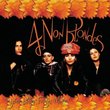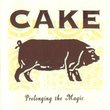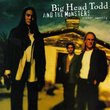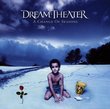| All Artists: Robert Plant Title: Principle of Moments Members Wishing: 6 Total Copies: 0 Label: Rhino / Wea Original Release Date: 1/1/1983 Re-Release Date: 4/3/2007 Album Type: Original recording remastered, Extra tracks Genres: Pop, Rock, Classic Rock, Metal Style: Album-Oriented Rock (AOR) Number of Discs: 1 SwapaCD Credits: 1 UPCs: 081227415921, 603497997527 |
Search - Robert Plant :: Principle of Moments
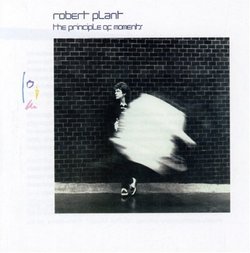 | Robert Plant Principle of Moments Genres: Pop, Rock, Classic Rock, Metal
Robert Plant's Post-Led Zeppelin Solo Career is celebrated with an expanded & remastered edition. The Principle of Moments is a complex and expressive sonic marvel. It includes four rare bonus tracks as well as the ... more » |
Larger Image |
CD DetailsSynopsis
Album Description Robert Plant's Post-Led Zeppelin Solo Career is celebrated with an expanded & remastered edition. The Principle of Moments is a complex and expressive sonic marvel. It includes four rare bonus tracks as well as the previously-unreleased track, "Turnaround." Similarly Requested CDs
|
CD ReviewsAverage Effort Vaughan | UK | 06/24/2007 (4 out of 5 stars) "It's unlikely that an album such as this is going to win over new fans - I'd guess most people buying it are fans from the past. So I'll address the three things those who are considering upgrading will care about: 1. Does it sound better? 2. Are the bonus tracks worthy? 3. Is the booklet any good? Is the sound better? The quick answer is YES. However, it's a MARGINAL improvement only. It's much louder, so if you play your music with the stereo turned up to 5, then you might only need this disc on 3 (if that makes any sense). There is EVER SO SLIGHTLY more clarity, and the bass is tighter. However, probably only audiophiles will care. It is NOT a "night and day" difference. When you adjust volume levels so the old disc sounds the same loudness wise, the differences are very minor. Are the bonus tracks worth it? Well there are four here. The first "In the Mood Live" is actually quite bad. Plant's vocal is out of tune on the harmonies, and the mix loses instruments every now and again, pushing the guitar to the back. The second "Thru with the Two Step Live" is pretty good though. It clocks in at 10 minutes, with an extended intro of more than 3 minutes. The mix has settled, and it's a good listen. The third is "Lively Up Yourself Live", a Bob Marley tune. This is a good song, and while Plant simply covers it (not major changes really) it's a fun tune, and it's done by musicians clearly having a good time. Finally, there's "Turnaround", an outtake from the original sessions. This is by far the best bonus track here. I wish they had put it FIRST among the bonus songs, so we could have enjoyed the sessions rather than have to wade through the live stuff first. All in all, the bonus material is okay. The studio track is great, the live stuff is nice, but not essential. Finally the booklet. They have taken the notes straight from the booklet of the box set from wence this came - they're not exhaustive, sadly. Still, tey beat the original release. All in all then, this is a minor upgrade to a classic record. Those expecting something revilutionary sound wise will be disapointed if they do a close examination. The bonus tracks are't terrible though, and Plant is always great." Truly Superior Vaughan | 05/12/2000 (4 out of 5 stars) "This is just a beautiful album, although a bit too short. It's got a great mix of gorgeous songs and experimental tracks. I adore Phil Collins' drumming and Robbie Blunt's guitar (I wish I knew what other albums Mr. Blunt appears on). It's hard to believe I've been enjoying this album for nearly 20 years now.A couple of songs deserve special mention. "Thru With the Two-Step" is one of the most beautiful songs I've ever heard - a bit heavier on the keyboards than the usual Plant fare, but that Blunt guitar solo just rips out my guts every time. The emotion and clarity is simply breathtaking.The other standout is "Big Log". OK, this is where I'm going to sound like a wacko. I don't know how other people react to it, but to me this is one of those very rare songs that I could swear the artist wrote while talking directly to God. Although it's a simple song, the version recorded here is absolutely untouchable in its perfection. It's like everything in the universe somehow lined up to produce the perfect performance of the perfect song." Robert Plant discovers life after Led Zeppelin 29-year old wallflower | West Lafayette, IN | 06/08/2001 (5 out of 5 stars) "The 1980s held so much promise for Led Zeppelin. Their final album had shown they could make the transition into the digitally-minded decade with ease by toning down the guitar attack in favor of lush keyboards. However, drummer John Bonham's death silenced that notion and the surviving members decided to carry on alone. No surprise, Robert Plant, being the most visible member of Zeppelin, found solo success first. His 1982 debut PICTURES AT ELEVEN sold well thanks to his previous fame with Zeppelin, even peaking at #5 on the charts without a high-selling single. But that album seemed to say that Plant still missed the heavy blues-rock that Zeppelin had all but pioneered. With the follow-up PRINCIPLE OF MOMENTS, Robert probably decided to sever ties with his past once and for all. Indeed, MOMENTS introduces a more pop-oriented facet to Plant's personality, and like the keyboard-based departure that was IN THROUGH THE OUT DOOR, it works surprisingly well. The album generated 2 top 40 hits for Plant: the simple yet infectious "In The Mood" and the moody, introspective "Big Log". This was probably due to the airy soundscapes that producers Benji Lefeure, Pat Moran, and Plant himself bring to songs that may have also worked had Jimmy Page had a hand in them. "Mood" proves that blues-shouter Plant could convincingly sing mellow pop, while "Big Log" maintains the mystery of Zeppelin's best work, although some have said it is Robert Plant having a conversation with God (maybe about John Bonham's death), so who knows? Hinting at Led Zeppelin's underrated willingness to experiment, PRINCIPLE OF MOMENTS has its share of more left-field ditties like the eerie "Stranger Here...Than Over There", "Messin' With The Mekon" and "Thru With The Two-Step". Plant hasn't lost his tendency for abstract song titles, and their intention at sparking discussion among music fans is indeed a successful one. The closest things to all-out rockers on MOMENTS are "Other Arms" and "Horizontal Departure", proving that Robert Plant doesn't need to be reflective all of the time. While the keyboard playing by Jezz Woodroffe would be the most obvious highlight of MOMENTS, the percussion work should be equally noted. While John Bonham's tubthumping drumwork is missed for sure, the slightly understated sound of it on MOMENTS works just as well. Phil Collins and ex-Jethro Tull skinsman Barriemore Barlow give the songs a supple backbeat that even Bonzo himself may have appreciated. PRINCIPLE OF MOMENTS was as big a success as its predecessor PICTURES AT ELEVEN, becoming a top 5 hit at a time when the charts were still geared towards artists who were a generation younger than Plant. Whether or not it was due to Robert Plant's legendary work with Zeppelin or the album's own merits is unclear. But it still went a long way in establishing Robert Plant as an engaging solo artist in his own right. And for anyone who knocks the follow-up SHAKEN N' STIRRED for being too keyboard-driven, they should listen to PRINCIPLE OF MOMENTS to realize that the more production-based approach was coming anyway."
|

 Track Listings (12) - Disc #1
Track Listings (12) - Disc #1





